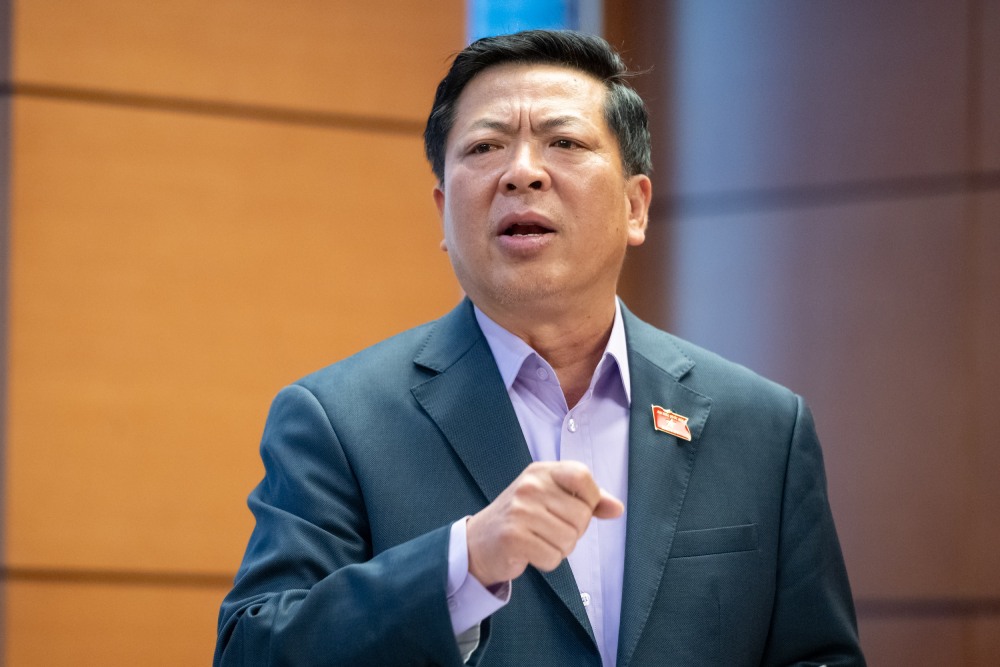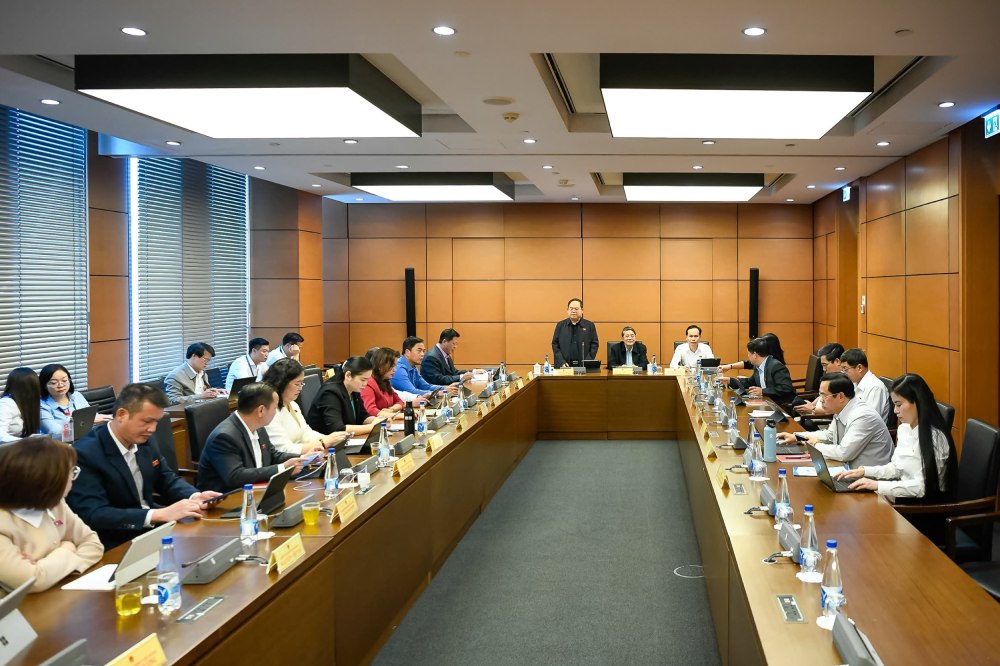On November 7, continuing the 10th Session, the National Assembly discussed in groups the draft Law on Planning (amended); the draft Law amending and supplementing a number of articles of the Law on Urban and Rural Planning; on adjusting the National Master Plan for the period 2021 - 2030.
Commenting on the draft Law on Planning (amended), Vice Chairman of the National Assembly Le Minh Hoan said that it is necessary to clarify what planning is. Because when implementing the arrangement of administrative boundaries, we have to re-planning.
According to the Vice Chairman of the National Assembly, the planning is a marketing of the local image in the future. When looking at that, we will imagine what the locality will be like in 5 or 10 years, what economic, cultural, and social life will be like...
However, according to Vice Chairman of the National Assembly Le Minh Hoan, we also have to plan a flexible space, if the planning is too strict, every "push" must be adjusted.
Meanwhile, the process of adjusting a plan is as long as the planning process.
"We have shifted from the legal thinking of not only managing, but to create new development space, for society to participate. Thus, when looking at that planning, people see opportunities for investment. Local businesses, cooperatives, and craft villages see space for themselves, that is, activate the entire economic space" - Vice Chairman of the National Assembly said.
At the same time, according to Vice Chairman of the National Assembly Le Minh Hoan, we need large ports, airports, and industrial parks, but the local economic "level" is still lacking in the planning.
The Vice Chairman of the National Assembly proposed to clarify the planning to serve who, we serve the local economy, call for investment, but also ensure that local residents must be beneficiaries, taking people as the center.
Vice Chairman of the National Assembly Le Minh Hoan said and hoped that the planning must create new resources, especially the resources among the people that are still abundant.
Expressing these views, the Vice Chairman of the National Assembly emphasized that planning must be for everyone, every family, avoiding the situation of planning to " Suppress". Planning is the concretization of the dreams of local governments and people in the future.
According to delegate Tran Duc Thuan (Nghe An National Assembly delegation), the promulgation of the Law on Planning (amended) is necessary to remove obstacles in the process of implementing current laws.
Regarding the mechanism for handling conflicts between plans, the delegate said that it is reasonable to stipulate that the Prime Minister or Minister has the right to request adjustments, but there needs to be an additional mechanism for independent criticism.
When conflicts arise between the plans of ministries, branches, an independent agency, such as the Inter-governmental Council, can review, examine and propose solutions, helping to increase objectivity and transparency in management.
Regarding the planning process, the delegate said that the draft replace the "planning task" with a "planning outline" which is not appropriate.
planning tasks clearly demonstrate the nature of assigning tasks with higher legal responsibility, while planning outlines are mainly technical in nature...
The delegate recommended keeping the phrase "planning task" to ensure connectivity; at the same time, it is possible to stipulate a mechanism to shorten procedures to remove difficulties for localities in organizing implementation.
There is a situation where after planning, they are left behind, and when they have to work, they cannot do anything else
At the discussion session, Minister of Construction Tran Hong Minh also stated that planning is very important, an indispensable content in the process of socio-economic development.

The Minister of Construction said that the planning must have a long-term mindset and vision, update the Central's instructions, ensure scientificity, application of modern technology, connectivity, high feasibility and effective use of national resources.
If there is no planning, it will lead to widespread construction, "having one place for another", leading to disruption of the landscape and environment, affecting socio-economic development. If there is an incorrect or incomplete planning implementation, the effectiveness will also be limited, causing long-term consequences.
The Minister said that the capital Hanoi and some localities have clearly seen the problems in the past time.
The Minister of Construction said that he will work with the Ministry of Finance to study the issue of "life expectancy" planning, currently the planning vision is still short, and a longer-term vision must be studied.
He also said that there was a situation where the planning was adjusted many times, "all day long". Adjust because investors come to see beautiful locations and draw lines, then adjust, from land for developing social culture to commercial business land.

In response to some opinions that many plans are still short-term, usually only 10-30 years, while many other countries have developed a 50-100 year plan, the Minister said that relevant agencies will absorb and study this issue during the drafting process.
He gave an example of the development of the seaport system, currently the vision to 2030 of main ports for socio-economic development is very important, but the vision is to only contain 50,000-ton ships, while the current trend is 200,000-ton ships...
Regarding water resource planning, the Minister of Construction said that this content in the current law is relatively complete, it is only necessary to review in detail for each industry.
The Minister pointed out the recent reality that due to heavy rain and floods, many weak dyke sections have broken, causing serious flooding in some areas such as Thai Nguyen, Bac Giang, etc. Therefore, when planning, it is necessary to consider elevators, drainage systems and water retention, ensuring dyke safety, and regulating water resources.
According to Mr. Minh, all of these contents must be expressed throughout the overall planning, industry planning to provincial planning, ensuring consistency from top to bottom.
The Minister of Construction also said that there are still many problems in land use planning, suspended planning, etc. He suggested that relevant agencies study and resolve them to avoid the situation of long-term suspended projects causing waste of social resources.
"There are cases where planning is finished and then left there many times, when it is time to work another job, it is not possible," said the Minister and said that when planning needs to be carefully studied, it is necessary to invite experts and scientists to research and evaluate to achieve efficiency.











